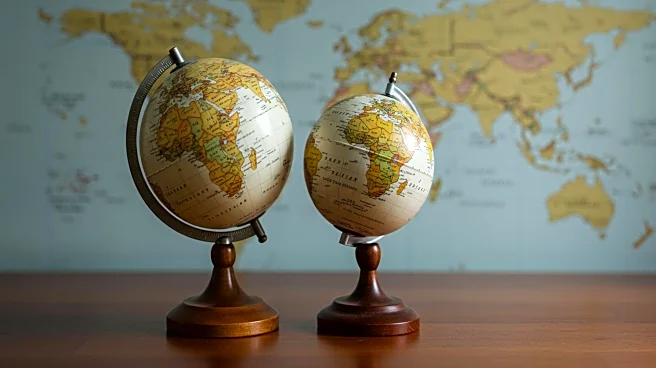What's Happening?
European leaders are set to accompany Ukrainian President Volodymyr Zelenskyy to Washington, DC, for discussions with President Trump aimed at resolving the ongoing Russia-Ukraine war. This follows a summit in Alaska between President Trump and Russian President Vladimir Putin, where Trump dropped his push for a ceasefire and punitive actions against Russia. Special US envoy Steve Witkoff announced that Putin agreed to allow the US and European allies to offer Ukraine a security guarantee similar to NATO's collective defense mandate. Zelenskyy, after meeting with European leaders, emphasized the need for real negotiations based on current front lines. Despite no immediate ceasefire, Trump proposed a plan involving Ukraine ceding territory to Russia, which has been met with criticism from Ukraine and its allies.
Why It's Important?
The discussions in Washington are crucial as they could shape the future of the Russia-Ukraine conflict, impacting regional stability and international relations. The potential security guarantee for Ukraine could strengthen its defense against Russian aggression, aligning with its long-term goal of NATO membership. However, the proposal for Ukraine to cede territory raises concerns about sovereignty and territorial integrity, which are critical issues for Ukraine and its allies. The outcome of these talks could influence global diplomatic strategies and the balance of power in Eastern Europe.
What's Next?
The upcoming talks in Washington will focus on security guarantees, territorial issues, and continued support for Ukraine. European leaders aim to present a united front to President Trump, emphasizing the importance of maintaining pressure through sanctions. The discussions may lead to further negotiations or adjustments in international policies regarding the conflict. The diplomatic efforts will continue to seek a resolution that respects Ukraine's territorial integrity while addressing the broader geopolitical implications.
Beyond the Headlines
The situation highlights the complex dynamics of international diplomacy, where strategic interests and ethical considerations intersect. The proposal for land swaps raises questions about the precedent it sets for conflict resolution and the potential long-term impact on international norms regarding territorial disputes. The involvement of multiple European leaders underscores the significance of collective action in addressing global challenges.








